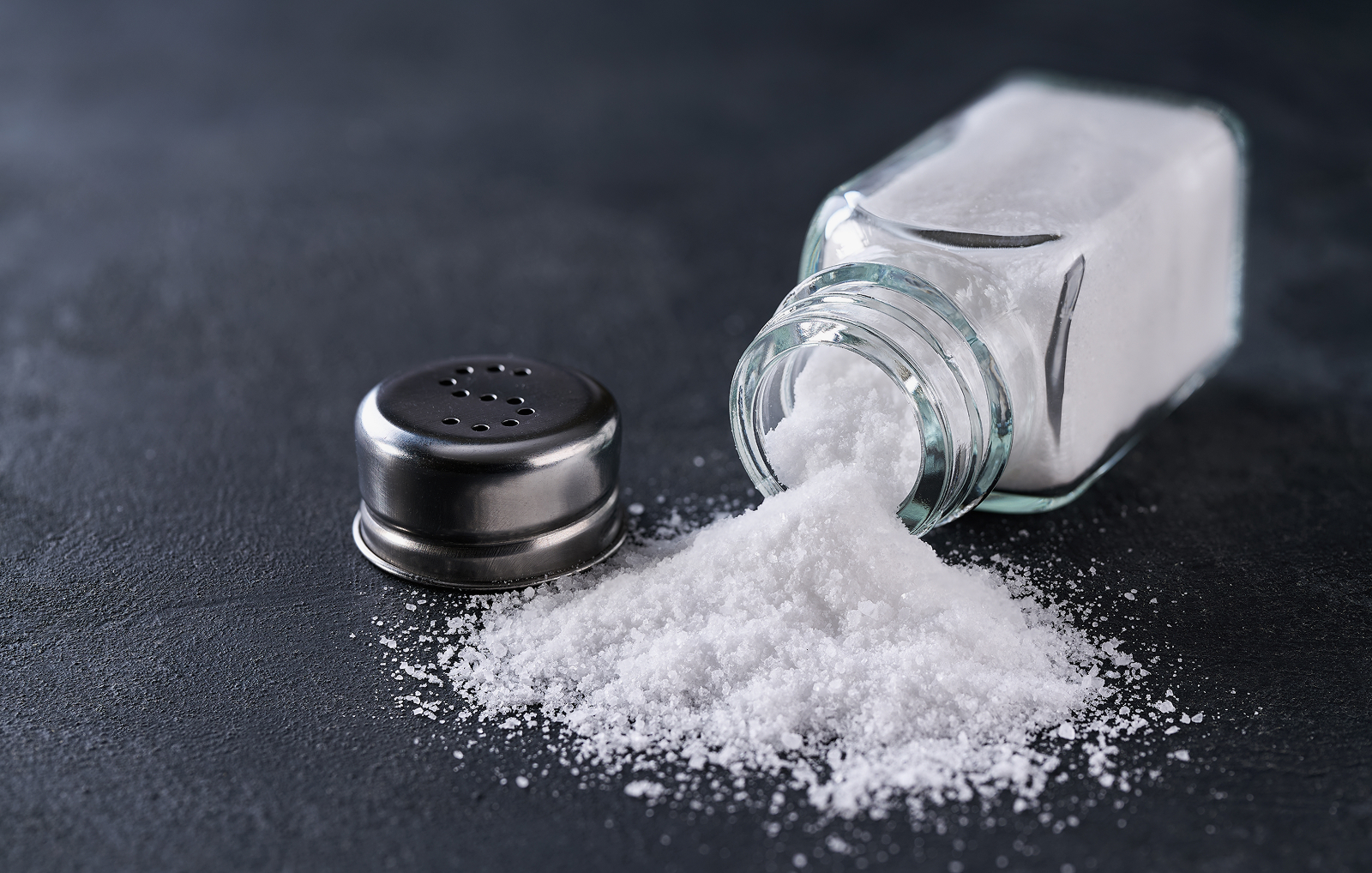
If you have type 2 diabetes, salt doesn't affect blood sugar levels. But it's important to limit how much you eat if you are managing diabetes.
Too much salt can raise your blood pressure. People with diabetes and hypertension are more likely to be affected by this. It can lead to heart disease, stroke and kidney disease.
The recommended daily salt intake for adults is less than 6 grams of salt per day. 6 grams of salt is about one level teaspoon.
Some food labels call salt sodium instead. Salt and sodium are measured slightly differently. The recommended daily sodium intake for adults is less than 2.5g per day.
Some sodium in our diet is good because it helps our kidneys to control the amount of water in our blood.
If we eat too much sodium, water is pulled back into our bloodstream. The more water in our blood vessels, the higher our blood pressure gets.
A lot of the food we eat already has salt in it. Around three-quarters of the salt we consume daily has already been added to our food before buying it.
Many of these will be familiar to you, but some may not be; here are the main sources of salt:
When shopping, look out for reduced-salt options of your favourite foods. You can now buy reduced-salt ketchup, baked beans and even soy sauce.
You may see more expensive salts on supermarket shelves. These may be promoted as being more natural and healthy. In reality, they are no different.
They still add unnecessary sodium chloride to your diet. These include things such as pink salt, black salt and rock salt.
These salts are usually less refined (less processed) than table salt. But their amount of sodium and nutrients are similar to table salt. They can still put you at risk of developing heart and circulatory diseases.
Disclaimer
This article is for educational purposes only and should not be used as a substitute for medical advice. Always speak to your doctor, nurse or pharmacist about your individual care. The information reflects NHS and NICE guidance at the time of publication.